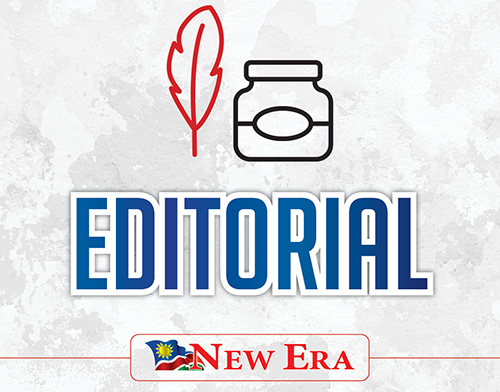Abraham Lincoln, the 16th president of the United States, once remarked “Elections belong to the people. It’s their decision. If they decide to turn their back on the fire and burn their behinds, then they will just have to sit on their blisters”.
His message reverberates in Namibia today at a crucial juncture as we approach the tail-end of the electoral calendar, with voting day set for 27 November, a little over a month from today.
In recent times, the Electoral Commission of Namibia (ECN) has courted controversy over some of its decisions, including the deregistration of political parties such as the Namibia Economic Freedom Fighters and the Christian Democratic Voice.
But just as the dust was beginning to settle, the CN was found wanting again when it handpicked a South African firm, Ren-Form, to print ballot papers and provide election materials for next month’s national elections.
Namibians and political actors across the divide have every right to demand answers as to why the commission had to opt for emergency procurement when it knew five years ago that there would be Presidential and National Assembly elections in November 2024.
As such, those who argue that the commotion in which the ECN finds itself and which has brought its credibility into question is self-created, are right.
As it stands, local and international political parties, commentators and ordinary Namibians hold the view – rightly so – that something untoward occurred when over N$6.2 million in tender was awarded to Ren-Form without subjecting the process to normal procurement to create a level ground for all and sundry to compete, including local printing companies.
However, political commentators argue that the emergency pose that the ECN has turned this into is simply a result of their incompetence, stating that they had five years to find a suitable printer, instead of handpicking a suspicious company.
A local pundit was quoted this week, saying: “The ECN knew there would be an election this year. They knew the election was scheduled, and proclaimed it to be on 27 November. The ECN knew they had to print ballot papers for the purposes of this election. They had all the time in the world to prepare for the elections, and to ensure that the processes that lead to the printing of ballot papers are followed, and the bidding processes are done in good time. It is just not excusable that the ECN wants to say it’s an emergency. It can never be an emergency if we all knew since time immemorial that there would be an election”.
However, both Ren-Form and ECN have maintained the process is beyond reproach.
“The ECN unequivocally refutes the malicious and baseless allegations being circulated regarding the award of the contract for the procurement of ballot papers for the November 2024 Presidential and National Assembly elections as announced on 17 October 2024. As the election season unfolds, we note the deliberate spread of misinformation, aimed at creating confusion and sowing distrust. The commission firmly asserts that our procurement processes are fully-transparent and compliant with all relevant legal frameworks. The commission is fully-committed to upholding the highest standards of transparency and accountability, as mandated by our constitutional duty to safeguard free and fair elections,” De Wet Siluka, the commission’s spokesperson, said.
Ren-Form came out guns blazing to defend its name, threatening to take legal action against those accusing it of corruptly colluding with the ECN in the awarding of the tender.
They also distanced themselves from controversial Zimbabwean businessman Wiknell Chivhayo.
“Ren-Form CC has on numerous occasions placed on record in the public domain that the allegations of corruption and price inflation levelled against it in connection with the Zimbabwe elections are false, malicious and were made by certain individuals who, to date, failed to produce any evidence to substantiate the same,” the company said through its lawyers on Wednesday.
However, as election day beckons, some glitches have appeared to throw spanners in the work of the ECN, a body whose credibility, integrity and transparency cannot be compromised in any way, shape or form if achieving credible, free and fair elections is anything to go by.
Additionally, taxpayers need to be taken into confidence by the commission that their hard-earned money is not being used recklessly at a whim with sinister motives.
The ECN must be ready at every turn to take the nation and voters into their confidence.
The commission must not only preach transparency, accountability, integrity and credibility, but be seen to be transparent, accountable, upholding their standards of integrity, and credible every step of the way.
While the ECN should be open to public scrutiny, it is essential to caution politicians against launching unsubstantiated and malicious attacks for political gain, especially during election season.
We have a collective responsibility to protect the integrity of the commission, while also ensuring it upholds the highest standards of professionalism.
Striking this balance is crucial for fostering public trust, and ensuring a fair electoral process.
Accountability and transparency are sacrosanct to any self-respecting entity or individual.
In closing, in his exit interview with this newspaper, former ECN chief electoral and referenda officer Theo Mujoro said: “Running an election management body in any country is not an easy task, and not for the faint of heart. Given the sheer size and enormity of national elections, organising elections is the most complex project any nation undertakes outside of preparing for war”.



